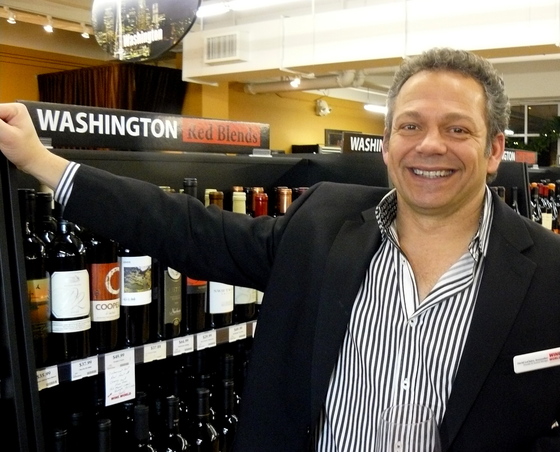
Wine World Warehouse, a 23,000-square foot facility just off I-5 on NE 45th, is the largest wine store in the Northwest. Six months from now, when the Washington Liquor Control Board is supposed to close its 700 or so retail outlets, Wine World will also become Washington's largest independent liquor store. Yet its owner, Seattle sommelier David LeClaire, is not thrilled.
LeClaire launched his superstore a year ago, taking over an expansive space that once been the University Plaza Hotel, and, briefly, an OfficeMax outlet. He had spent the previous decade as a savvy producer of Seattle wine events, with a politician's touch and a marketer's dream list of writers and tastemakers; before that, he'd spent a decade as the wine steward at the Painted Table in the Alexis Hotel. With backing from a group of private investors and the energetic support of a get-it-done chef named Lenny Rede, LeClaire assembled shelves that display 8,000 bottles, including wines from 500 Washington wineries. He's a hero to wine producers who leveraged his hard work as a consultant into a position of retail prominence.
 |
| Wine World interior |
LeClaire, now 50, grew up in Escanaba, on Michigan's Upper Peninsula, a town of some 13,000 souls. When Wal-Mart opened a 24-hour superstore on the west side of Lincoln Road, he recalls, the townspeople responded with unusual solidarity to support their local merchants, among them Elmer's County Market, on the other side of the highway. Elmer Dagenais, who died last year at the age of 94, was the sort of old-fashioned shopkeeper who doesn't exist anymore. He'd trust his customers to settle their bills when they'd get a paycheck. Even more importantly, Elmer would hire local teenagers, give them their first jobs and teach them the value of community. And plenty of times, he'd be standing right beside his kids, LeClaire among them, helping bag groceries.
"Treat your customers with respect, appreciate their business and thank them for shopping at your store." Those were Elmer Dagenais' words, but they're also David LeClaire's.
LeClaire voted "no" on Initiative 1183 to privatize Washington's liquor business, not because he wanted to keep the state stores open or because he sympathized with the union workers who'll be laid off, but because he didn't like Costco's "clear the deck" approach, which he fears will "decimate the little guys."
As owner of the only freestanding wine shop in Washington to meet I=1183's minimum size of 10,000-square ft for liquor sales, LeClaire certainly isn't going to turn away from the opportunity to sell spirits. He intends to sell far more than the "Top 100" brands, especially in categories like Scotch, Tequila and Sherry. He'll showcase the Northwest's increasingly ambitious micro-distilleries. He'll continue to have partnerships with outside event planners, and hold tastings and host private events at Wine World. But he's deeply worried about the effects of privatization on smaller wine shops in small towns around the state. "What's going to happen to the independent wine shops in Hoquiam or Montesano once the Wal-Mart in Aberdeen starts selling liquor?" he asks. It's an ethic you don't see very often.
Before the November election, LeClaire was warning of "changes buried in this initiative [that] will crush or at the very least severely impact small wine wineries, small wine stores, and small grocery stores." The voters, though, were so anxious to get government out of the liquor business that they approved I-1183. "We are going to benefit handsomely," LeClaire admits, "but a no vote would have been in the long-term best interest of the entire community."
No comments:
Post a Comment